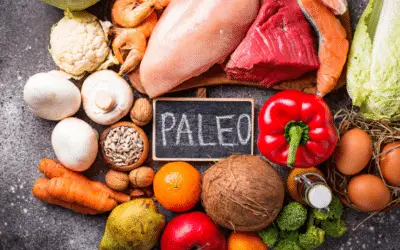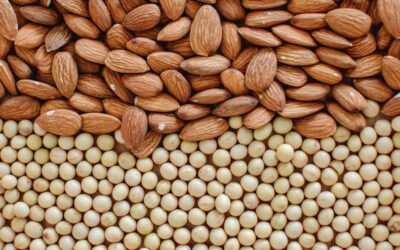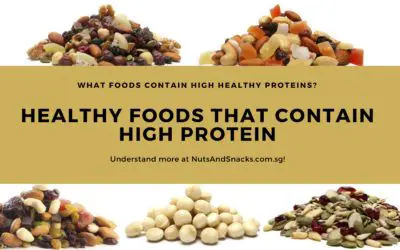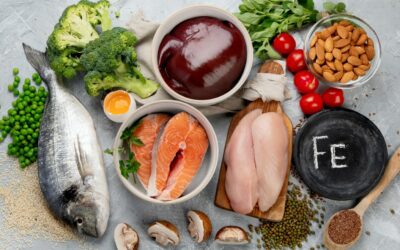
Gout, often referred to as the “disease of kings,” is a form of inflammatory arthritis characterized by sudden, severe attacks of pain, redness, and tenderness in the joints, typically in the big toe. It is caused by the crystallization of uric acid in the joints, leading to the formation of sharp, needle-like crystals. While gout is primarily associated with dietary choices and purine-rich foods, one food group that has been a subject of debate in relation to gout is nuts. In this article, we will explore the complex relationship between nuts and gout, addressing whether nuts cause gout, if they can be consumed by gout sufferers, and their impact on uric acid levels. Additionally, we will discuss the role of cashew nuts, the development of gout, and foods that are beneficial for managing this painful condition.
Does Nuts Cause Gout?
The idea that nuts may trigger gout has been a topic of concern among patients and healthcare providers. However, it’s essential to clarify that nuts themselves are not a direct cause of gout. Gout is primarily triggered by the buildup of uric acid in the bloodstream, leading to the formation of urate crystals in the joints. Uric acid is a natural byproduct of purine metabolism in the body.
While some foods, like organ meats and certain seafood, are high in purines and can contribute to increased uric acid levels, nuts are generally low in purines. This means that, in moderation, nuts are unlikely to be a sole or direct cause of gout.
Can You Eat Nuts If You Have Gout?
The relationship between nuts and gout isn’t entirely straightforward. For most gout sufferers, consuming nuts in moderation is unlikely to exacerbate their condition. In fact, nuts have various health benefits, and they can be part of a balanced diet for individuals with gout. Nuts are a good source of healthy fats, plant-based protein, and essential nutrients like magnesium, which may have potential benefits for managing gout.
However, it’s essential to exercise caution and moderation when adding nuts to your diet, as excessive consumption of any food can lead to weight gain, which is a risk factor for gout. Additionally, some individuals may be more sensitive to dietary purines, and therefore, their reactions to specific foods may vary. In such cases, it’s advisable to consult a healthcare professional or registered dietitian to create a personalized diet plan tailored to their gout management.
Which Nuts Increase Uric Acid?
While nuts are generally low in purines, some specific types of nuts contain slightly higher levels of purines compared to others. For instance, peanuts and cashew nuts are known to have relatively higher purine content. However, it’s crucial to emphasize that this doesn’t automatically classify them as gout-inducing foods. The purine content in nuts is not significantly high when compared to foods like organ meats or certain seafood, which are more likely to trigger gout attacks. Therefore, occasional consumption of peanuts or cashews in moderation is unlikely to lead to severe uric acid spikes.
Can Nuts Reduce Uric Acid?
Nuts are not typically considered a direct uric acid reducer, but they can play a role in promoting overall health, which may indirectly contribute to uric acid management. Some nuts, like almonds and walnuts, are rich in heart-healthy fats, including monounsaturated and polyunsaturated fats. These fats have been associated with lower levels of inflammation and improved cardiovascular health, which can be particularly beneficial for gout sufferers, as gout is often linked to other health conditions such as hypertension and heart disease.
Additionally, the mineral magnesium found in nuts can play a part in gout management. Some research suggests that magnesium may help reduce uric acid levels. Therefore, while nuts are not a direct uric acid-reducing remedy, including them in a balanced diet alongside other gout-friendly foods can have a positive impact on overall health, potentially leading to better gout management.
Do Cashew Nuts Cause Gout?
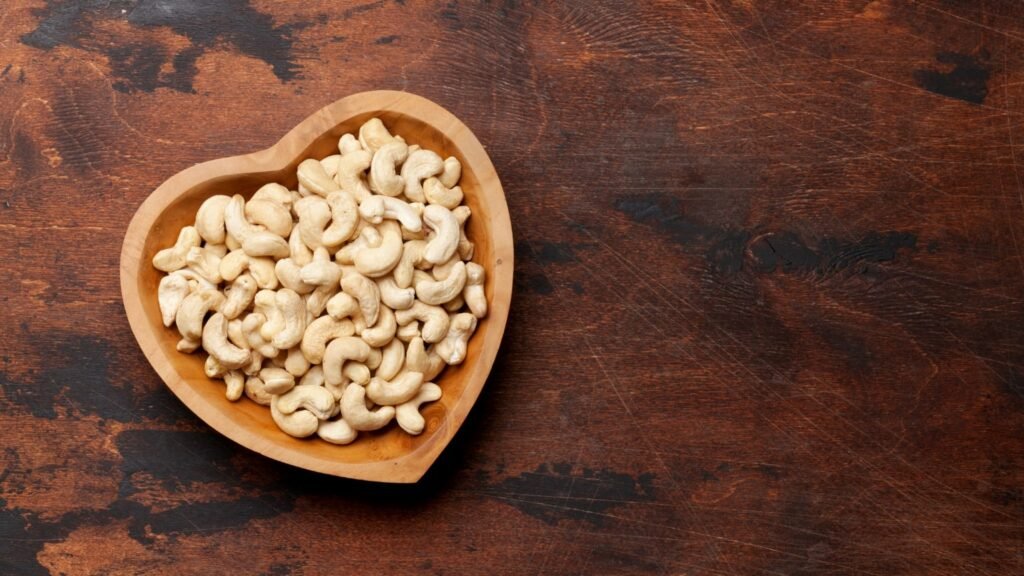
Cashew nuts, like peanuts, are among the nut varieties that contain slightly higher purine levels compared to others. However, cashew nuts alone do not cause gout. Gout is a multifaceted condition influenced by a combination of factors, including genetics, lifestyle, and overall diet. In individuals with gout, it’s not necessary to completely avoid cashew nuts, but as with all foods, moderation is key. If you have gout and enjoy cashews, consuming them in sensible portions should not significantly impact your uric acid levels or trigger gout attacks.
How Does Gout Come About?
Gout arises when there is an excess of uric acid in the body, leading to the formation of urate crystals. Uric acid is a natural waste product produced when the body breaks down purines, which are compounds found in various foods and also created by the body’s cells. When uric acid levels become too high, crystals can accumulate in the joints and surrounding tissues, causing inflammation, pain, and swelling.
Factors contributing to elevated uric acid levels and the development of gout include:
- Diet: Consuming purine-rich foods and excessive alcohol can contribute to increased uric acid production.
- Obesity: Excess body weight can lead to higher uric acid levels.
- Genetics: A family history of gout can increase one’s susceptibility.
- Medical Conditions: Certain health conditions, such as kidney disease and hypertension, can affect uric acid regulation.
What Food to Avoid For Gout?
While medications are often prescribed to manage gout, dietary choices play a crucial role in preventing flare-ups. To effectively manage gout, it’s essential to be aware of the foods that can trigger or exacerbate this condition. Here is a comprehensive guide to the foods to avoid for gout sufferers.
1. High-Purine Foods
Purines are natural compounds found in various foods. When the body breaks down purines, uric acid is produced. Therefore, foods high in purines can lead to increased uric acid levels and trigger gout attacks. Foods to limit or avoid include:
- Organ Meats: Liver, kidney, and sweetbreads are exceptionally high in purines.
- Certain Seafood: Anchovies, sardines, mussels, and herring are purine-rich.
- Red Meat: Beef, lamb, and pork are moderately high in purines.
- Game Meats: Venison and game birds, such as duck and goose, are also purine-rich.
2. Alcoholic Beverages
Alcohol consumption, particularly beer and spirits, is associated with an increased risk of gout. Beer, in particular, is high in purines, which can raise uric acid levels. Alcohol can also lead to dehydration, a known gout trigger.
3. Sugary Beverages
High-fructose corn syrup, often found in sugary sodas and fruit juices, has been linked to gout. Fructose can increase uric acid production, so it’s best to limit your intake of these beverages.
4. Processed Foods
Processed foods often contain additives and preservatives that can exacerbate gout. Many of these items are high in unhealthy fats, refined sugars, and artificial ingredients. Reducing processed foods in your diet is beneficial for gout management and overall health.
5. High-Fat Dairy
While low-fat or fat-free dairy products are generally considered safe for gout sufferers, high-fat dairy products like whole milk and full-fat cheese can trigger gout attacks. Opt for low-fat or fat-free dairy options to reduce your risk.
6. Certain Vegetables
While vegetables are typically encouraged in a gout-friendly diet, some should be consumed in moderation due to their moderate purine content. These include:
- Asparagus
- Mushrooms
- Spinach
- Cauliflower
Keep in mind that vegetables contain significantly lower purine levels than meat and seafood, so you don’t need to eliminate them entirely.
7. Sugary Snacks
Candies, cakes, and other sugary treats can exacerbate gout. High sugar intake has been associated with increased uric acid levels. Reducing your consumption of sugary snacks is not only beneficial for gout but for overall health.
8. Excessive Coffee
While moderate coffee consumption may have some protective effects against gout, excessive caffeine intake can lead to dehydration. It’s best to enjoy coffee in moderation and ensure you stay well-hydrated.
9. Limit Salt
Excessive salt intake can lead to increased blood pressure, which is often associated with gout. Reducing salt in your diet and opting for herbs and spices for flavoring can help manage gout.
10. Fatty and Fried Foods
High-fat and fried foods, such as fast food, fried chicken, and deep-fried snacks, are not conducive to gout management. They can lead to weight gain and other health issues that can exacerbate gout symptoms.
What Food is Suitable for Gout?
Incorporating gout-friendly foods into your diet can help lower uric acid levels, reduce the risk of painful flare-ups, and improve your overall well-being. Nuts, in particular, are a versatile and nutritious addition to your gout diet. Here’s a guide to foods suitable for gout, with a focus on the role of nuts.
Cherries
Cherries, both sweet and tart, have long been associated with gout relief. They contain compounds that may help lower uric acid levels and reduce inflammation. Eating fresh cherries, drinking cherry juice, or using cherry extract supplements can be beneficial for gout sufferers.
Nuts
Nuts, in moderation, can be a valuable part of a gout-friendly diet. They are a source of healthy fats, protein, and essential nutrients. Nuts like almonds, walnuts, and peanuts are generally considered safe for gout patients. In fact, some studies suggest that consuming nuts may be associated with a lower risk of gout attacks. However, it’s essential to enjoy nuts in moderation and stay within your daily calorie and portion limits.
Low-Fat Dairy
Low-fat or fat-free dairy products, such as milk, yogurt, and cheese, are rich in calcium and protein and can help reduce the risk of gout attacks. They also provide essential nutrients without the high purine content that can exacerbate gout symptoms.
Complex Carbohydrates
Whole grains like brown rice, whole wheat, and oats are excellent sources of complex carbohydrates. They are high in fiber and can help manage weight, which is crucial for gout management. Whole grains also promote a stable blood sugar level, which is beneficial for overall health.
Fruits and Vegetables
A diet rich in fruits and vegetables can provide various antioxidants and essential vitamins. Some fruits, like oranges, are known for their vitamin C content, which may help lower uric acid levels. Additionally, vegetables are low in purines and can help reduce inflammation and manage gout.
Lean Proteins
Choosing lean sources of protein, such as skinless poultry, tofu, and legumes, can help gout sufferers meet their protein needs without the purine-rich content found in some meat and seafood. These protein sources are also lower in saturated fats and can support weight management.
Water
Adequate hydration is essential for gout management. Drinking plenty of water helps flush excess uric acid from the body and reduce the risk of crystallization in the joints. Staying well-hydrated is a simple yet highly effective way to manage gout symptoms.
While including these gout-friendly foods in your diet can be helpful, it’s crucial to consult with a healthcare professional or registered dietitian to create a personalized meal plan tailored to your specific needs. Moreover, gout management goes beyond diet; maintaining a healthy weight, moderating alcohol consumption, and taking prescribed medications are essential components of a comprehensive gout treatment plan. With the right dietary choices and lifestyle adjustments, you can better control gout and improve your overall quality of life.
Conclusion
While the relationship between nuts and gout is nuanced, nuts are not inherently detrimental to gout sufferers when consumed in moderation. Gout management should primarily focus on overall dietary choices, weight management, and other lifestyle factors. If you have gout or are concerned about uric acid levels, it’s advisable to consult a healthcare professional or registered dietitian who can provide personalized guidance and help you create a gout-friendly diet that meets your specific needs.



